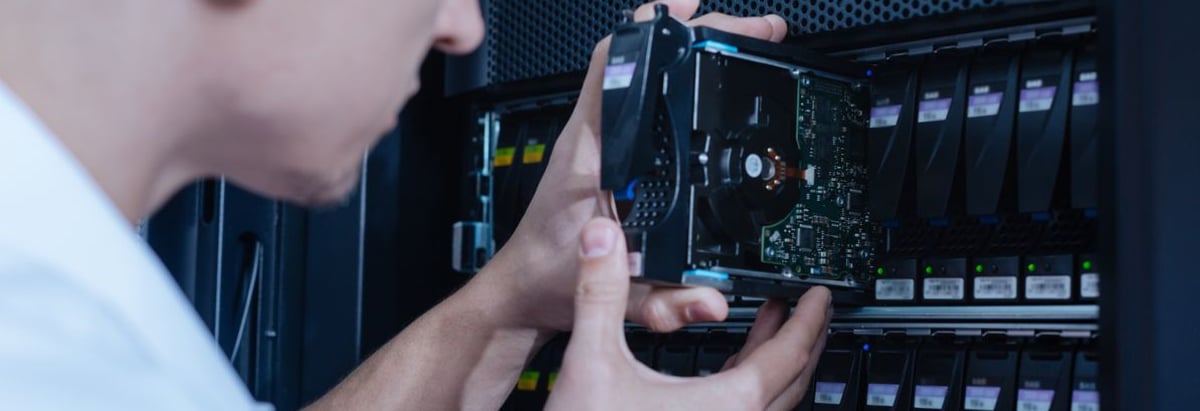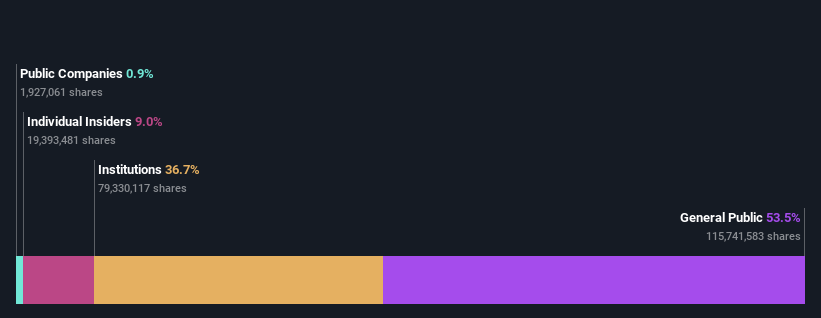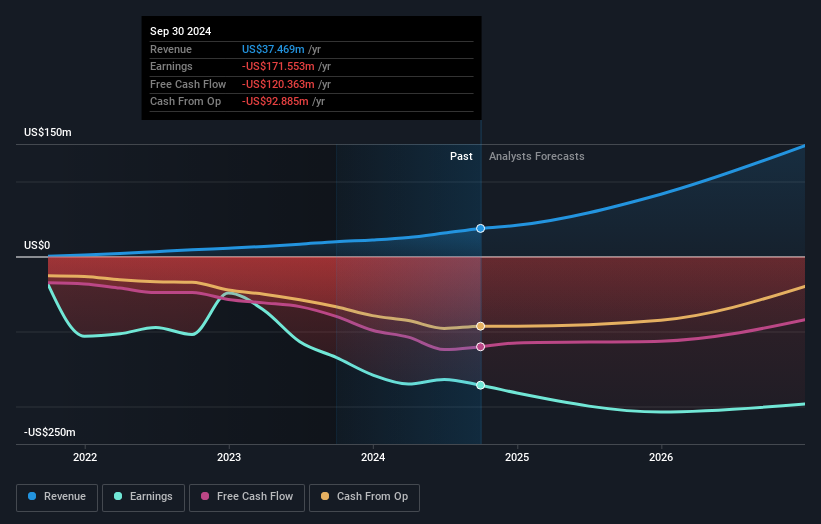- United States
- /
- Tech Hardware
- /
- NYSE:IONQ
IonQ, Inc.'s (NYSE:IONQ) 17% loss last week hit both individual investors who own 53% as well as institutions

Key Insights
- The considerable ownership by individual investors in IonQ indicates that they collectively have a greater say in management and business strategy
- 39% of the business is held by the top 25 shareholders
- Institutional ownership in IonQ is 37%
If you want to know who really controls IonQ, Inc. (NYSE:IONQ), then you'll have to look at the makeup of its share registry. We can see that individual investors own the lion's share in the company with 53% ownership. Put another way, the group faces the maximum upside potential (or downside risk).
While the holdings of individual investors took a hit after last week’s 17% price drop, institutions with their 37% holdings also suffered.
Let's delve deeper into each type of owner of IonQ, beginning with the chart below.
View our latest analysis for IonQ

What Does The Institutional Ownership Tell Us About IonQ?
Many institutions measure their performance against an index that approximates the local market. So they usually pay more attention to companies that are included in major indices.
IonQ already has institutions on the share registry. Indeed, they own a respectable stake in the company. This suggests some credibility amongst professional investors. But we can't rely on that fact alone since institutions make bad investments sometimes, just like everyone does. It is not uncommon to see a big share price drop if two large institutional investors try to sell out of a stock at the same time. So it is worth checking the past earnings trajectory of IonQ, (below). Of course, keep in mind that there are other factors to consider, too.

Hedge funds don't have many shares in IonQ. The company's largest shareholder is The Vanguard Group, Inc., with ownership of 9.8%. For context, the second largest shareholder holds about 6.9% of the shares outstanding, followed by an ownership of 3.4% by the third-largest shareholder.
On studying our ownership data, we found that 25 of the top shareholders collectively own less than 50% of the share register, implying that no single individual has a majority interest.
Researching institutional ownership is a good way to gauge and filter a stock's expected performance. The same can be achieved by studying analyst sentiments. There are a reasonable number of analysts covering the stock, so it might be useful to find out their aggregate view on the future.
Insider Ownership Of IonQ
The definition of an insider can differ slightly between different countries, but members of the board of directors always count. The company management answer to the board and the latter should represent the interests of shareholders. Notably, sometimes top-level managers are on the board themselves.
Most consider insider ownership a positive because it can indicate the board is well aligned with other shareholders. However, on some occasions too much power is concentrated within this group.
We can report that insiders do own shares in IonQ, Inc.. The insiders have a meaningful stake worth US$579m. Most would see this as a real positive. If you would like to explore the question of insider alignment, you can click here to see if insiders have been buying or selling.
General Public Ownership
The general public -- including retail investors -- own 53% of IonQ. This level of ownership gives investors from the wider public some power to sway key policy decisions such as board composition, executive compensation, and the dividend payout ratio.
Next Steps:
I find it very interesting to look at who exactly owns a company. But to truly gain insight, we need to consider other information, too. Case in point: We've spotted 3 warning signs for IonQ you should be aware of, and 1 of them shouldn't be ignored.
Ultimately the future is most important. You can access this free report on analyst forecasts for the company.
NB: Figures in this article are calculated using data from the last twelve months, which refer to the 12-month period ending on the last date of the month the financial statement is dated. This may not be consistent with full year annual report figures.
New: AI Stock Screener & Alerts
Our new AI Stock Screener scans the market every day to uncover opportunities.
• Dividend Powerhouses (3%+ Yield)
• Undervalued Small Caps with Insider Buying
• High growth Tech and AI Companies
Or build your own from over 50 metrics.
Have feedback on this article? Concerned about the content? Get in touch with us directly. Alternatively, email editorial-team (at) simplywallst.com.
This article by Simply Wall St is general in nature. We provide commentary based on historical data and analyst forecasts only using an unbiased methodology and our articles are not intended to be financial advice. It does not constitute a recommendation to buy or sell any stock, and does not take account of your objectives, or your financial situation. We aim to bring you long-term focused analysis driven by fundamental data. Note that our analysis may not factor in the latest price-sensitive company announcements or qualitative material. Simply Wall St has no position in any stocks mentioned.
About NYSE:IONQ
Flawless balance sheet moderate.
Similar Companies
Market Insights
Community Narratives



